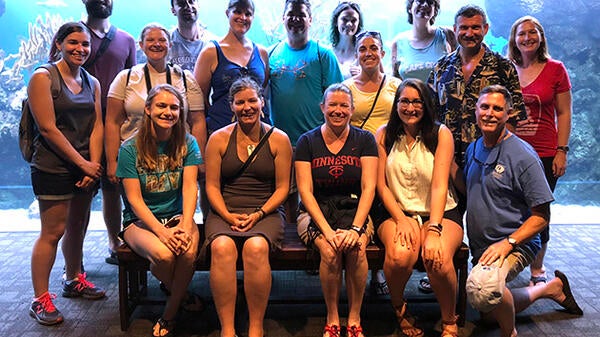Ed Argenta, a teacher consultant with the Connecticut Geographic Alliance, first came to BIOS almost 40 years ago when he was teaching science at Vernon Center Middle School in central Connecticut. At the time, his colleague Duffy Brookes, had been taking groups of students to BIOS since 1970 as part of an advanced marine studies program. In 1979, Brookes invited Argenta on one of these weeklong “Vernon Bermuda Workshop” trips and, since then, the pair have brought at least one group of students—and sometimes two or more—every year to BIOS for a course in tropical island ecology and ocean science studies.
Navigating New Experiences in Bermuda
November 28, 2018
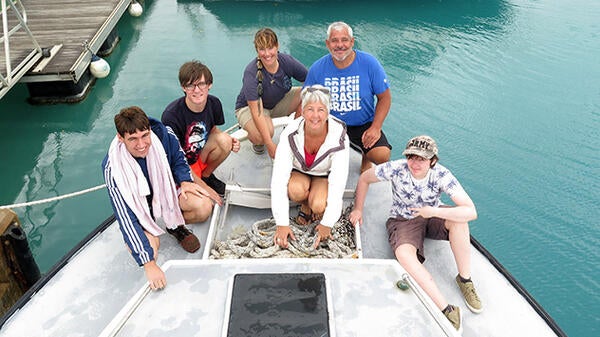
To visit Nonsuch Island, a lush 14-acre nature reserve located at the east end of Bermuda, the last stretch requires guests to jump from a boat and swim a short distance to shore. For some teens, this may seem like a cool adventure. For those juggling emotional challenges that range from attention disorders and depression to mental health issues, it presents a different hurdle.
Meet the Supervisors Who Helped to Shape Four Scientists’ Careers
January 29, 2019
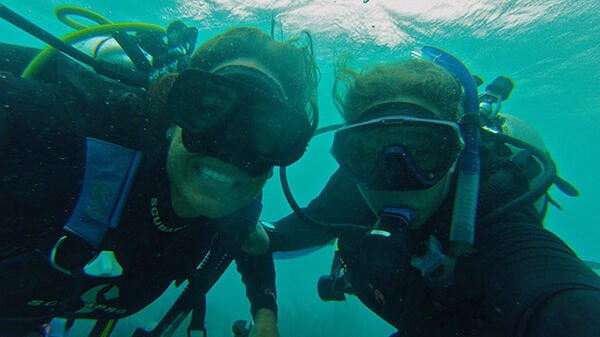
Supervisors can help to shape the lives and careers of their students and trainees. Sometimes, they become lifelong mentors and eventual collaborators, contributing to a new generation of scientific discovery. And students can forge meaningful relationships with those senior scientists even at the earliest stages of their science careers.
Enhancing Education Through Experience
January 29, 2019
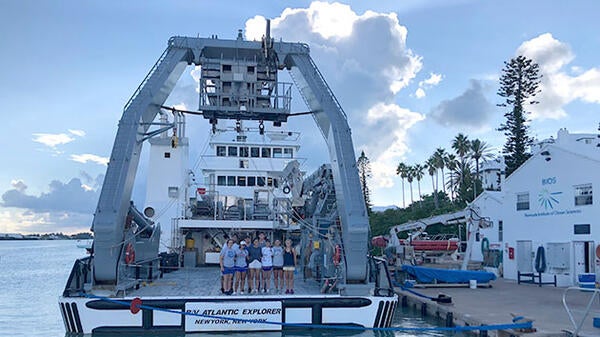
Each spring, BIOS is one of more than 350 colleges, universities, medical centers, professional organizations, and research institutions that accepts undergraduate students as part of the National Science Foundation (NSF) Research Experiences for Undergraduates (REU) program. For more than 30 years, the REU program has given U.S. students the opportunity to conduct hands-on research in science, technology, engineering, and mathematics (STEM) fields as part of their undergraduate education.
Canadian Students at BIOS Finish Successful Research Internships
January 29, 2019
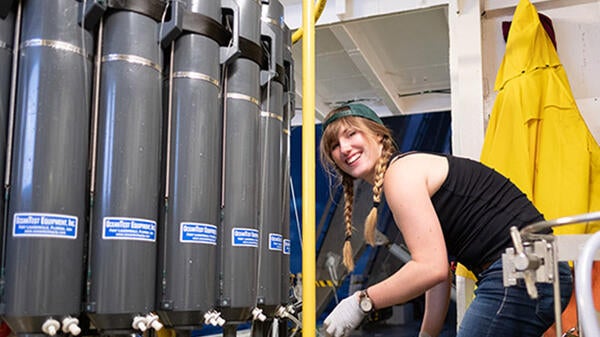
Since its inception in the 1970s, the Canadian Associates of BIOS (CABIOS) program has provided more than 200 Canadian students and young scientists with financial assistance to pursue marine science and oceanographic research internships, as well as support for hundreds of students to complete academic coursework at BIOS. Founded by Earlston Doe, a former BIOS Life Trustee and Canadian oceanographer born in Bermuda, the CABIOS fund honors the memory of his youngest son Learmont “Leary” Doe.
Students Fly South for the Winter
February 26, 2019

As college education becomes as much about experiential learning outside the classroom as it is about lectures, labs, and study halls, many schools have begun to adopt what is known as the “4-1-4” academic calendar. In this system, students have a 4-month semester, then a 1-month “intersession” or “mini session,” followed by another 4-month semester. This offers students a variety of opportunities during this January term, including study abroad programs, internships, undergraduate research, and independent study.
Collaboration Benefits Island’s Students
February 26, 2019
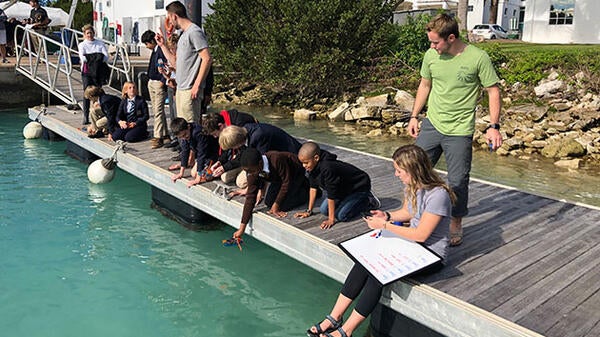
A novel partnership between BIOS’s Ocean Academy and the University of Delaware (UDel) this winter gave dozens of local teachers and students the opportunity to learn about marine robotics and how they are used to explore the oceans.
Calling All BIOS Volunteers
March 29, 2019
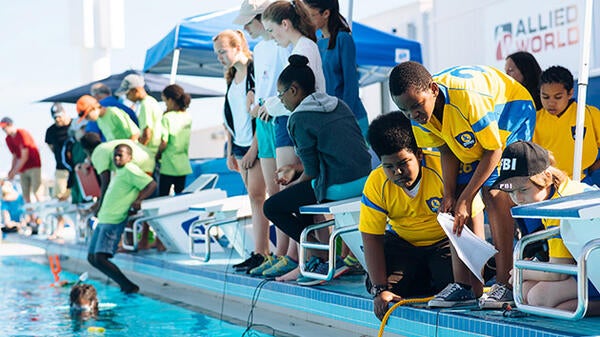
Like to snorkel? Interested in supporting emerging marine engineers? Volunteers from BIOS and the Bermuda community are needed to assist on Saturday, April 27 from 8:00a.m. to 3:00p.m., as more than 30 teams of school students test their mission-tasked Remotely Operated Vehicles (ROVs) during the annual island-wide robotics challenge.
An Environmental Engineering Challenge, with a Twist
March 29, 2019

How could a group of 15 students from diverse cultural and socioeconomic backgrounds—and separated by hundreds of miles— work together to address a real-world ecological issue? That’s what a team of educators is set to find out with new funding from the National Geographic Society.
The Next Generation of Scientists Begin Work at BIOS
June 28, 2019
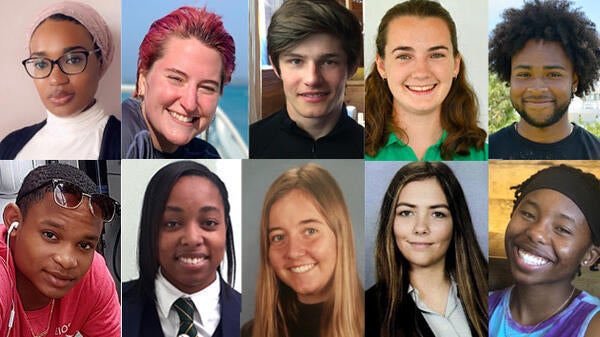
Each year a handful of Bermudian students are selected to participate in the BIOS Bermuda Program. This program, which began in 1976, offers students aged 18 and older the opportunity to broaden their knowledge of marine and atmospheric sciences by working on a specific project of interest alongside BIOS scientists in both field and laboratory settings.
